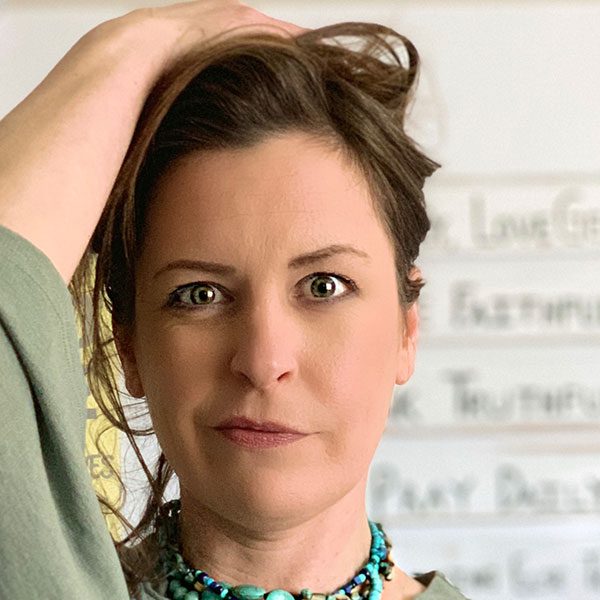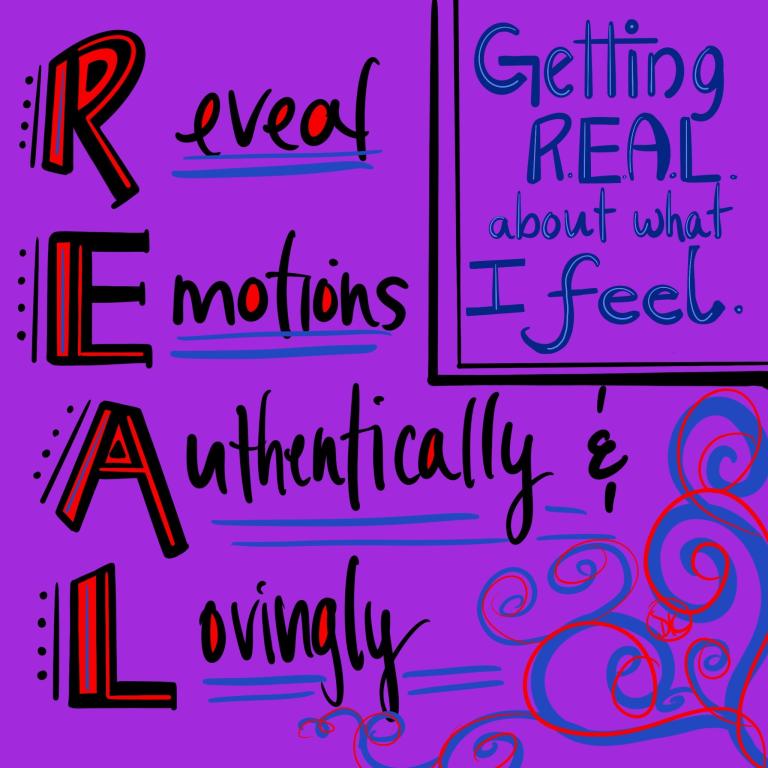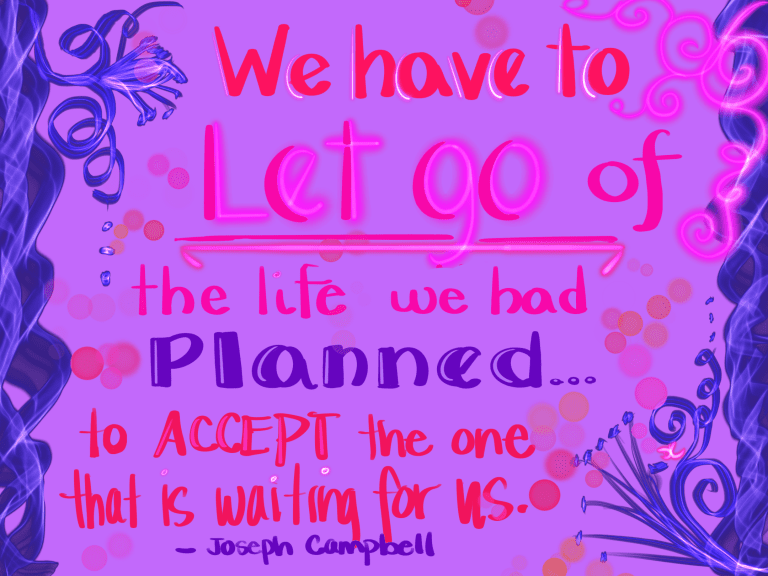
The fine line that we toe between “feelin’ myself” and having a big ego hinges on a paradoxical paradigm- one that requires a proper tension between the ego and the authentic Self.
When we step over the line of a healthy tension, snapping ensues- and I don’t just mean metaphorically.

Not only is the strain enough to compromise the breaking weight; but stepping over the line can transform self-love into self-worship.
The Ego Rides the Id
Sigmund Freud’s structural model relies upon a triad construct: the id, ego, super-ego. While there is a popular appreciation for the theory; I would like to extract the id and ego from the super-ego for simplicity. We can extrapolate from Freud’s original concept of the Horse and Rider model, an illustration that best suits the concept herein.
As Freud explained:
The functional importance of the ego is manifested in…control over the approaches to motility devolves upon it. Thus in its relation to the id it is like a man on horseback, who has to hold in check the superior strength of the horse; with this difference, that the rider tries to do so with his own strength while the ego uses borrowed forces. Often a rider, if he is not to be parted from his horse, is obliged to guide it where it wants to go; so in the same way the ego is in the habit of transforming the id’s will into action as if it were its own.
How I interpret that, is that when the ego, or the authentic Self, has control of the reigns, our ego (the id) is in check, so to speak. More importantly, this means that we are operating from an integrated place. It is our awareness of the necessity of this dynamic that acts as the “borrowed forces” in which we exercise our strength over the ego.
Confused? The id = what I will refer to as ego; Freud’s ego= what I will refer to as the authentic Self- the I Am within each of us.
Personality is Providential
I believe that we are all uniquely designed to reflect particular qualities that are attributes of God. What that means is that our individual personalities are just one of the infinite reflections, that when combined, make up the spectrum of all that reflects God in humanity.
What that means is that within us exists the attributes we were meant to have- whether that be introversion or extroversion or a tempestuous nature or an agreeable nature. Whether it be a cautious constitution or an adventurous composition; whatever it may be, we are imbued with our characteristics, intentionally, by a master Architect.
We develop our personalities over our lifetimes. Our personality is shaped, in stages, as a response to our influences and our environment. However, Romans 12:6 tells us:
We have different gifts according to the grace given to each of us.
I recognize the term “gifts” as our talents, and our talents are curated from both our passions and personality. These gifts are not given to the ego, but to the authentic Self.
But truly, “we have the mind of Christ” (1 Corinth. 1:16) and the mind of Christ is of cosmic proportions. So, wouldn’t we be remiss to consider that our personality is providential?
Authentic Self = Feelin’ Myself
Out authentic Self contains the unique personality that truly emboldens who we are- the true I Am in each of us. And we are called to love who we are. Loving who I Am is what I call feelin’ myself.
Feelin‘ myself simply means that you are loving yourself-in a healthy and humble way. It means that you recognize your gift and utilize the space the gift makes for you. Otherwise stated, Proverbs 18:16:
A gift opens up the way and ushers the giver into the presence of the great.
Feelin’ myself means I Am confident in my competence. Loving yourself is important and until we can embrace who we authentically are, we really cannot love others. Not until we actually know what it feels like to be loved by ourselves.
When the Heifer Tugs on the Rope
A more realistic representation of Freud’s horse and rider, updated for today’s additional pressures and outrages; is best illustrated a bit differently. It looks more like trying to lead a Jersey heifer into the barn, in the dark.
All she wants is to eat grass- the heifer (the id) wants what she wants. All I want is for her to go inside before the storm begins; my need is to meet her need, in a selfless way. But Elsie- my Jersey heifer- wants grass. So, she tugs to test the slack of the rope hooked to her halter.
The ego tugs to test the slack, daily. We hear voices; a quiet whimper says, “You are not good enough”; the other tells us, “You got this, you are enough, do it!” When we listen to the quiet whimper, many of us assume that must be our inner voice telling us some kind of truth about ourselves. Quiet isn’t what we normally think of when we think of the ego. We think first of narcissism when picturing what “egotism” looks like.
The ego will do whatever it can to protect you, even tell you quiet little lies in meager voices.
Other times, we hear 2 distinct but separate voices, but this time it’s one telling us: “Show these people who you are!” contrasted with an even louder voices screaming: “Stop, wait, take a breath! Don’t react!”
The tugging persists.
Clinging to the Rope
In some instances, we are trying to lead a Jersey heifer into the barn and we fail to realize how many times we’ve wrapped that rope around our arm for better stability. When Elsie decides to head for the grass, she doesn’t consider whether or not I am tangled in the rope- she just bolts. What happens?
When our ego takes control, some of us won’t let go of that rope. I heard my husband yelling “Let go of the rope!” as it was happening, but didn’t listen immediately. For a moment, I believed I was going to get up and seize control of her. I didn’t want to lose control of her even though I never had it in the first place.
If the guide loses control of the heifer, we end up hurting ourselves.
That damn heifer tugs so hard, that, thanks to the dewy grass (and mud boots instead of utility boots) your whole body is jolted out of the comfort of gravity and your legs are pulled out from under you. Before you realize, you’ve crashed down on your shoulder, and now are clinging to the rope attached to an 800 pound bovine beauty, who is running toward the pasture.
By the time you get yourself untangled from the rope, the damage is done.
He Got a Big Ego
Before we get to the damage of losing the reign on our ego; we listen to the voices in our head. The voice that justifies our desire to compete, compare, condescend, conflate, control, and to make someone else culpable for our own feelings of lack; comes from our big ego.
“It’s too big. It’s too wide. It’s too strong. It won’t fit. It’s too much. It’s too tough.” Sure, Beyoncé didn’t give the impression that such a “big ego” was a problem for her; but for us, and when not discussing the size of our partner’s genitalia; it’s problematic.
It really is too big. It really is too wide- the gate is narrow. It doesn’t fit with who we were meant to be. Yes, we were called to do big things, but not to be bigger than another.
We were meant to reflect the light of God, which means we are called to reflect love. If we want to shine our light bright, we don’t need to force a shadow over another for our light to shine. In fact, together, we can only shine brighter.
Identity in I Am
We often confuse having with being. Descartes equated thinking with being- “I think, therefore I am.” Spiritual teacher and well-known author, Eckhart Tolle suggests that Descartes didn’t find ultimate truth; rather he found the root of the ego- he just wasn’t aware of it.
French philosopher Jean Paul Sartre said that “the consciousness that says ‘I am’ is not the consciousness that thinks.”
I Am is beyond our thinking- I Am is the transcendent component of our divine personality, and ultimately, the guider of the heifer, in the present moment.
Our authentic Self, I Am- feelin’ myself- is our true identity in Christ.
In his book Seeds of Contemplation, Thomas Merton realized that:
The secret of my identity is hidden in the love and mercy of God.
Our authentic self is hidden in the love of God, but it’s not impossible to rediscover it.
The Ego Clings to the Rope
My desire to not let go of the rope came from a false identity- it came from my ego. See, we had just bought her two weeks prior, and she wasn’t an inexpensive purchase. I didn’t want to lose her, nor the plans I had already imagined for her. She was to be our lawn grazer and our milk cow. I had started clinging to the roles I was about to embark on, not to mention the doubt I had about whether or not I could take on this role. I was clinging to the rope because the ego hates change.
When we pick up labels to distinguish ourselves from others, we tend to be more loyal to the label than to people in our life. We also tend to cling to those labels and don’t want to let them go, because letting go means a change and the ego hates change.
We do that when we are competing for attention, or when we are trying to control our spouse’s emotions- perhaps with insults? It can be seen when we are purposefully playing contrarian during heated dialogues. When we see others’ ships begin to rise up in the waves, we act as if our ship is capsizing and we are without a lifeboat.
Why is it changes for others- often times really good changes- makes so many so uncomfortable- jealous even?
Hey, Jealousy
Jealousy crashes down into the calm waters. Jealousy may produce projecting our feelings of lack onto those we love. When we are jealous, we tend to pontificate- we need to reassert our validity, and the ego convinces us that the best way to do so is by competing and comparing.
We listen to our ego as she tells us we are not enough, or when we don’t feel seen or heard, or understood. We need to feel included! We need to express ourselves, and we do so emotionally, and by the guidance of the ego.
We forget that we can actually satisfy the needs that seem lacking. Instead of listening to ourselves, maybe we should consider talking to ourselves? Our authentic Self is the voice that talks us up, but we have to listen to her, instead of the control freak.
Guide Without a Rope
Once Elsie delivered her first calf, my husband and I set up a stanchion and began walking down a new path (full of immense challenges). In the first week or so, Elsie had to be led to the stanchion by her halter. Eventually, however, created such a routine, that she would MOO for us if we were late to milk her.
Proverbs 18:12 admonishes us to remember:
Haughtiness goes before destruction; humility precedes honor.
I had to take a mentality similar to that, when approaching Elsie each day to milk her. I needed to come to her vulnerable- but also cautious, so that she would learn to trust me. My ego would have created such a aura of draining energy, that for her, would have been too big, too wide, and too tough for her liking.
I had to humble myself before I presented myself to her. And then, I had to honor her space.
Be Confident, Don’t Be Conceited
Confidence says “I’m feelin’ myself”, it says “I Am enough as I am.”
Conceit says “I gotta big ego”, but it also says “No one can see me” or “I am not enough.”
Your authentic Self is enough. Your ego is never going to feel like there’s enough, because it’s always limited. Having and thinking are limiting. There are no limits in just being.
There are also no limits in the amount of honor we can grant to others, by humbling ourselves, and accepting that God blessed us all with gifts, with a divine spark- a light within. We don’t need to dim the light of others just because we think ours is somehow dimmer than theirs. All of our lights are capable of shining with the same brightness.
















